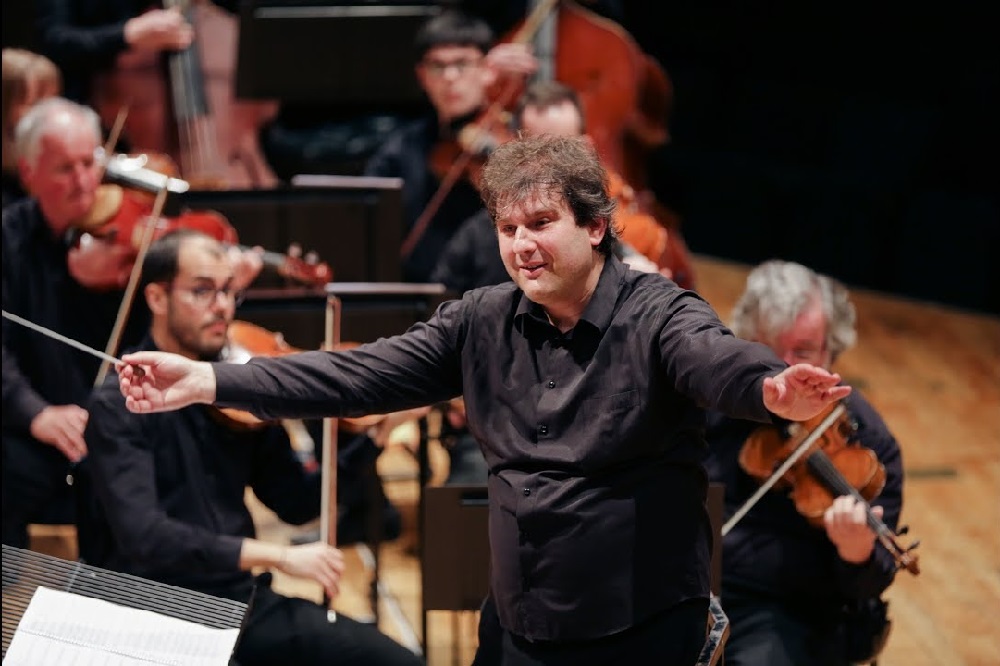Review: Welsh National Opera Orchestra, St David’s Hall, Cardiff

Peter Collins
In a bold and imaginative piece of programming, Czech conductor Tomas Hanus gave us just one work in the latest Sunday afternoon concert by the Welsh National Opera Orchestra.
With nationalism of various kinds, from the impressive to the downright dangerous, resurgent around the world, it was fascinating to listen to a complete performance of Czech composer Bedrich Smetana’s Ma Vlast, variously translated as My Fatherland, My Homeland, or My Country.
Smetana was the forerunner of the nationalist music movement of the 19th Century, and Ma Vlast reflects Czech nationalism and pride.
Hanus, music director of Welsh National Opera, clearly took great pride in bringing the best-known work of his fellow countryman to a large audience at the national concert hall of Wales, a country where nationalism appears to be on the rise.
Hanus told the audience that in the years since it’s composition Ma Vlast had been used and misused for political reasons. However, he wanted to concentrate on the forward-looking genius and beauty of the music.
So potent was the work considered that the Nazis banned performances of it in occupied Czechoslovakia to try to break the independent spirit of the Czech people.
Pride
There is no stridency or bombast in this music. Rather, there is an overwhelming feeling of exuberant pride and joy which demands attention and fires the imagination. The piece is modelled on the tone poem form pioneered by Franz Liszt. Together, the six tone poems are Smetana’s love letter to his country, describing battle, betrayal, death, nature, misfortune and love.
Hanus clearly has a passionate love of this music. On occasion he seemed to almost abandon conducting in the conventional way, instead swaying, almost dancing, smiling and beaming at the orchestra to express his delight in what was being played.
It certainly worked, producing from the entire orchestra a performance of sparkling beauty.
The best known of the tone poems is Vitava, portraying the ebb and flow of the two streams that come together to from the main river that runs through Prague. Hanus harnessed its melodic charms in such a well-crafted and free-flowing fashion that one could not fail to picture the scene in one’s imagination.
It was clearly appreciated by the captivated orchestra.
Hanus was keen to point out that the other five tone poems had equal merit. The complete performance certainly persuaded the audience that he was right.
Sadness
The opening arpeggios played on two harps lent a certain sadness to the opening piece, Vysehrad, The High Castle. Contrast that with the violence evoked in the third tone poem, Sarka, and the gentle lightness of the fourth tone poem, From The Bohemian Woods, and you get an idea of the varied nature of the work as a whole with its shifting dynamics and tempos.
At the end of the final tone poem, Blanik, it felt like we had been listening to a symphony, each tone poem contributing to one splendid, unified opus.
The WNO is still absorbing the impact of the short-sighted decision by the Arts Council of England to cut its grant.
This superb performance by the WNO orchestra demonstrates how crass that decision was. Hopefully it will not cause too much damage to a band of world class musicians of whom Wales as a nation should be justly proud.
Support our Nation today
For the price of a cup of coffee a month you can help us create an independent, not-for-profit, national news service for the people of Wales, by the people of Wales.






Truly sorry that I failed to get to this concert but I thoroughly enjoyed readingPeter Collins’ wholesome review.